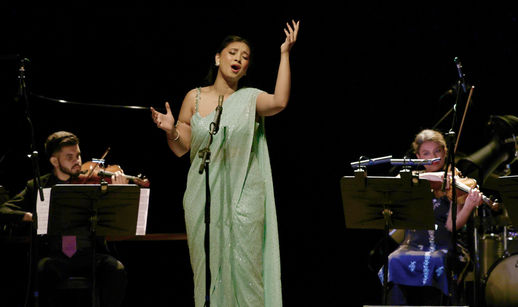top of page

The Legend of the Goddess
An Opera composed by Cheryl Bains
Where Vedic Tales meet Mythology
Femina Magazine
"The Legend of the Goddess: Where Vedic Tales Meet Opera, an innovative opera production composed by Cheryl Bains, brought the divine feminine to life through a spellbinding blend of Western Classical and Hindustani Classical Music..."
"Through moving tales, the play honored the enduring power and influence of Vedic goddesses...From the ferocious fury of Goddess Kali to the serene wisdom of Goddess Saraswati, the performance offered a nuanced portrayal of the many facets of women, ensuring that their voice and stories remain etched in time..."
"The Legend of the Goddess is a one-of-a-kind production that reimagines the richness of Vedic mythology through the lens of opera..."
tabla! Newspaper
"The show was like a deep-dive into the mythic and cultural richness of India... almost like being sucked in by a vortex of energy and exhilaration...
Cheryl's interpretation and expression of the Devi culture mixed with her operatic singing and performance prowess kept us in thrall, like a thriller."
I. Of Primordial Waters
Ganga
II. Warrior
Durga
III. Tripura
Sundari
Lakshmi
IV. Lover
Parvati

bottom of page




















